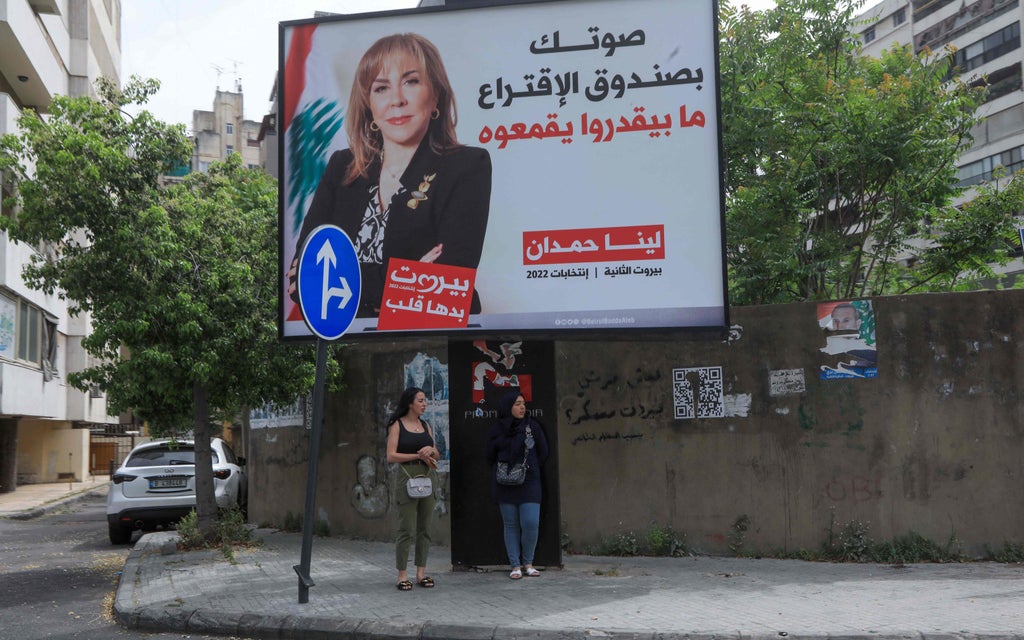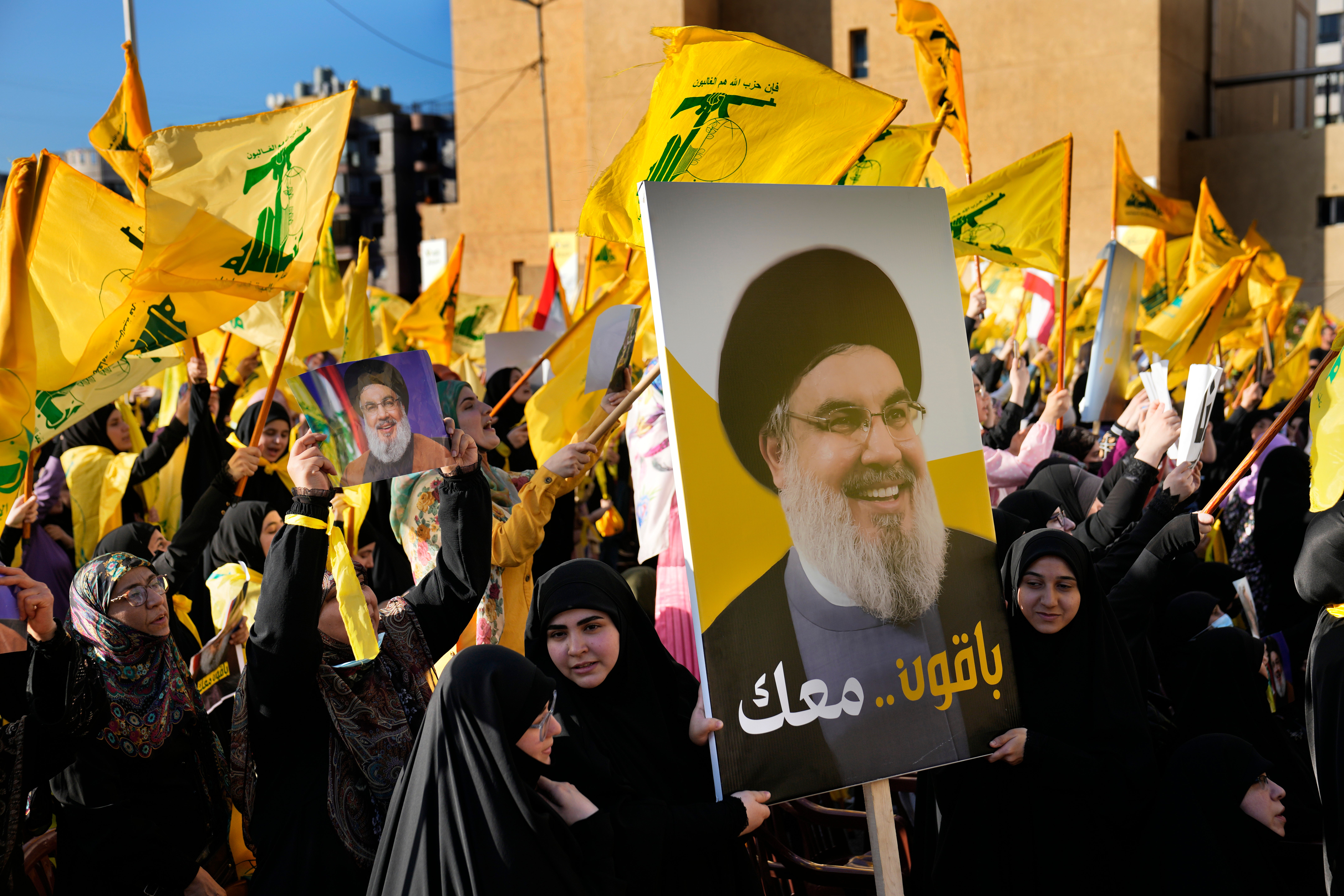
Lebanon goes to the polls on Sunday for the first general election since a severe economic and political crisis hit the country in late 2019.
In the last three years, the Lebanese pound, has lost more than 90 per cent of its value, trapping the vast majority of the population into poverty, according to the United Nations.
The economic meltdown and the country’s political instability triggered a series of protests that began in 2019, also known as the 17 October Revolution or Thawra (revolution).
Civil society organisations have joined those on the streets to protest against the current sectarian political establishment, accusing it of corruption and being accountable for the economic freefall and its consequences.
But although Lebanon is a country in desperate need of change, Sunday’s election is unlikely to help.
Civil society groups, activists and citizens involved in mass protests have created a fragmented opposition, lessening the likelihood that independent candidates can overturn the current political class and gain enough seats to trigger a change.
The last three years have shown that the Lebanese state has failed to provide basic services. They also showed how sectarian political parties have pushed back mass protests and dispersed public anger by ignoring political demands or accusing each other of maintaining and entrenching the status quo.
Lebanon was plunged into a financial meltdown after the collapse of a Ponzi scheme, in which fresh money was borrowed on the guarantee of high-interest payouts. However, the collapse forced private banks to lock depositors’ dollar accounts. Still today, nobody has been held accountable for this economic collapse.
Such a financial and economic situation created a multi-dimensional crisis that hit all sectors of society, including a lack of electricity all across the country, uncontrolled inflation, depletion of living standards, the crumbling of the middle class, and a mass exodus from the country.
The Beirut blast in August 2020 that killed more than 218 people and left more than 6,500 injured brought the Lebanese population to a new level of discontent and anger.
The explosion at Beirut port soon became the symbol of the corruption and negligence of the political class, and it exacerbated the dissatisfaction of the population towards the traditional political parties, seen as the culprit of the tragedy. Furthermore, the political attempts to hinder the investigations over the blast has led to the politicisation of the inquiry, polarised public opinion and exacerbated resentment.
Lebanese civil society groups and activists have tried to press the government and MPs to hold accountability for the economic disaster. They protested across the country by blocking roads and storming public institutions and politicians’ private households. On social media, activists carried out doxing activities.
However, these and other events that occurred in the last three years may not be enough to change the political scene in Sunday’s general election.
Since the end of the civil war in 1990, the Lebanese political system has distributed power among its religious communities, establishing a political class that has treated the administration of the state for its own interests.
According to the power-sharing system, the Lebanese presidency is a Maronite Christian, the prime minister a Sunni Muslim, and the speaker of parliament a Shiite.
Currently, the Shiite Hezbollah party and its allies, including the Shiite Amal party and the Christian Free Patriotic Movement (FPM), lead the majority of the parliament.
The elections are not expected to change much. It is hard to predict who will win on Sunday and, in a country desperate for change, it is likely that the current composition of the parliament will change drastically.
While the FPM is expected to lose seats, which would also weaken the leverage of Hezbollah and its allies in parliament, the Christian Lebanese Forces (LF) party, led by Samir Geagea, might gain some seats.
The established parties are expected to retain power but some independents are pushing for a political breakthrough.
Tahalof Watani, including Paula Yacoubian, the only independent who won a seat in the 2018 elections and is now seeking re-election, runs with 13 candidates.
Verena el Amil is the youngest candidate at 25 years of age and one of 155 women who will stand on Sunday. She was active during the 17 October protests.
Independents are expected to win some seats especially if younger people, who participated actively during the protests, vote.
A more nebulous situation grips the Sunni voters’ community, which was left leaderless when the leader of the Future Movement (FM) party, and former prime minister, Saad Hariri announced in January 2020 that he would not run in upcoming parliamentary elections and is withdrawing from Lebanese politics.
The stepping down of Hariri fragmented the political landscape, and the situation could encourage people not to vote in Sunni districts on Sunday. The Sunni vote will be the unknown variable and decisive for results. Their vote could block the expansion of Hezbollah and its allies, increase the number of independent candidates, and it will be also decisive in selecting the future prime minister. However, a share of the Sunni voters is likely to abstain from voting.
A poll commissioned by the German Konrad Adenauer Foundation earlier this year showed that a quarter of Lebanese would consider voting for independent candidates (25.7 per cent). Hezbollah received 14.7 per cent in the same poll, followed by groups created during the popular protest movement with 12.3 per cent, the LF with 11.5 per cent and the FPM with just under seven per cent.
Many have pinned hope on the diaspora vote. Expatriates voted from abroad earlier this month. Around 130,000 Lebanese cast their ballots, while, in the 2018 general election, roughly 50,000 people out of 90,000 registered voters abroad voted.

While independent political parties are trying to funnel public anger against traditional sectarian rivals to secure parliamentary seats, they have failed to unite themselves and the opposition has few chances to win.
Opposition candidates also report threats of violence and accuse supporters of traditional parties of disrupting their campaigns.
But whoever wins the election will have to cope with a cash-strapped country and a population bereft of hope.
Furthermore, the new government will have to deal with International Monetary Fund negotiations over the economic reforms to unlock $3bn (£2.45bn) in loans and aid.
Very few experts believe the election will improve the country’s economic and social prospects.







